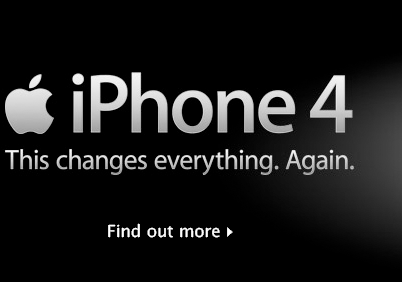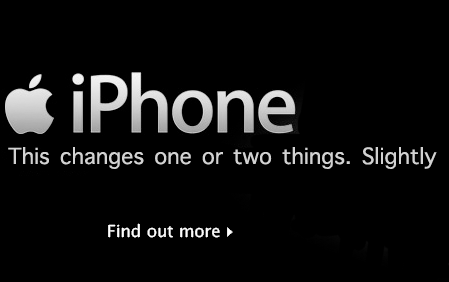
E3 seems to have developed a fairly new tradition over its last few iterations; namely, that at least one of our 'big three' platform holders manages to offer up a misguided effort at winning over the media, the consumer and the average gamer in a fairly disastrous public showing of awkwardness, unintentional comedy and disappointment.
We've witnessed this in the past with Nintendo's cringe worthy on-stage demonstration of Wii music. Sony's silence-inducing announcment of the Playstation 3's launch price, along with a fairly confusing and haphazard incident with a giant enemy crab.
This year however, the gaffe crown was passed arguably for the very first time to Microsoft, the company whos experience in such corporate events over the decades of its existance has typically resulted in slick, engaging conferences which push all the right buttons.
In 2010 however, it was not to be so.
And with that, let's take a look at the substantive points cataloguing Microsoft's biggest errors which ultimately resulted in the overwhelmingly negative reaction which seemed to genuinely shock and surprise the Xbox 360 creators after what they seemingly believed was a successful showing.


"Honey, when you've made the sale... stop selling."
Such wonderful advice, and some Microsoft would do well to follow. The problem, you see, is that the first half of Microsoft's show was devoted to showing off games that nobody in the audience really needed - or even wanted - to see. If the purpose of E3 in the grand scheme of things is to convince retailers to invest in your platforms and your games, and to woo the media into giving positive press for your wares, is there really any purpose to showing off say, Halo? Or Gears of War? Have these games not essentially sold themselves?
When Halo 1 was still a huge hit fresh in the minds of gamers worldwide, it is entirely understandable that Microsoft would devote a chunk of their time to showing off the big sequel to their most successful game. And indeed, people went wild for it. Gamers, the press, retailers were all successfully bowled over by the excitement Microsoft and Bungie generation for Halo 2. After Halo 2 had come and gone however, and generations faded out and new beginnings arose, and we enjoyed the bounties of the Halo 2 multiplayer map pack, Halo 3, Halo Wars and Halo 3: ODST, Halo became what is commonly referred to as an established AAA franchise. A reliable source of consistant quality.
And as such, it sells itself. People dont need to be convinced to play something they already can't wait to play. And the same applies to Gears of War 3; the third iteration of a game which is still pretty fresh in our minds, and one which we simply don't need to have demonstrated before our eyes when it's not doing anything notably different than what we'd expect.
When you show off games like these, you inevitably bore your audience despite the AAA calibre of gaming excellence on display. They know it's good. They've been playing it for years. They expect it.
So what do they want?

E3 is as much about getting hands on time with those games you've had your eye on all the way through their development as it is about being blown away by all new titles you've never heard of before. The audience should leave your conference feeling hyped and excited for games that they had no interest in or no knowledge of prior to entering the auditorium. If you leave a press event not anticipating anything which you weren't already looking forward to when you went in, you just sat through a pretty shoddy conference.
And in that regard Microsoft dropped the ball big time. While they've always kept their conferences grounded in the near-future, and respectfully so, a complete failure to give even a glimpse of the horizon paints a worryingly bare and dull year ahead which journalists and gamers alike couldn't help but speak negatively about. That isn't to say that Microsoft have nothing planned for the year ahead and beyond, but if they do, they didn't show it.
Gamers already knew about Halo. We knew about Gears of War. We knew about Fable 3, Call of Duty: Black Ops, Project Natal and Metal Gear Rising. Other than a teaser trailer for a game which doesn't even have a name yet, Microsoft chose not to show a single title we don't already know is on the way, begging the question of what exactly we're supposed to look forward to after we bag our copies of Halo Reach this fall.
Finally, we must consider:

An old teacher of mine once told me that success in an exam or a presentation is as much about knowing your stuff as it is about managing your time. The two go hand in hand. This presents the finale of Microsoft's three biggest pitfalls.
The average gamer was left with little to nothing worth hearing about just 20 minutes or so into Microsoft's conference. The overwhelming bulk of their time was spent dealing with Project Natal, or as it has been newly dubbed, Kinect. Of course, this is both entirely understandable and defensible. As outlined above, E3 is all about winning over retailers after all, and its only natural that Microsoft would want to explain exactly why every store in the world should want Kinect on its shelves. We expected it, and we understood that it was necessary.
Even still, Microsoft's focus on Kinect went beyond what most could tolerate and pushed on into the labouriously dull territory of sounding like a broken record. From the showing of samey, family-fun games to the needlessly long on-stage demonstrations of fitness titles, Microsoft's Kinect unveiling dominated the show to the point of making the initial display of more traditional games appear an afterthought in an otherwise Kinect-only conference. Even more frustratingly, it was an error we'd all seen before with Nintendo's earlier demonstrations of the Wii, making it all the more baffling that Microsoft would fall victim to such a pitfall.

With great ease, it would seem. Microsoft do not suffer from a lack of great games to show off, and yet to the surprise of gamers world wide simply decided not to do so. Crackdown 2 was playable on the show floor and, judging by the video previews available all over the internet, appears to be a great deal of fun. The sequel to a game which didn't sell quite as well as it deserved to, readily available to show off and win over the gaming audience, yet it was completely AWOL at Microsoft's conference. New, interesting and unique titles like Limbo from the creators of the charming downloadable title Braid were also shown off elsewhere, and could have added a creative talking point to the Xbox 360's time in the spotlight.
Then we can consider whatever 343 studios is currently working on; even a teaser trailer would have sufficed. Instead? Nothing at all. What about the future of Xbox Live, the updates planned for the coming year and the slew of online games on the horizon? No mention.
Overall, i think the rumors circulating prior to Microsoft's show presented a prettier picture than the reality; separate press events for both Kinect and Microsoft's traditional gaming audience would have produced vastly better results. The ball is now in their court to prove to the average gamer decisively and in a timely fashion that they have not been left behind in the wake of Kinect's arrival.

![]() Until next time.
Until next time.















.jpg)






Log in to comment